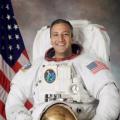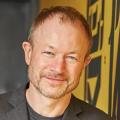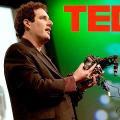Executive Education
Intense executive briefing day featuring expert insights, group activities, and technology deep dives. Designed for managers, executives, and decision-makers at all levels who graduated more than a year ago and wish to refresh their knowledge and understanding in topics like AI, robotics, clean energy, IoT, digital manufacturing, and product design.
Transformative Technologies in Mechanical Engineering
Mechanical Engineering and related fields are undergoing increasingly rapid innovation cycles: Robotics, AI, energy, and materials are making their way into everything we do. Digital manufacturing processes are changing how we think about production; product design practices are evolving, and customer expectations are shifting. Can you keep up?
On this intense executive briefing day, we bring a series of speakers to advise you on trends, transformations, and disruption in fields related to Mechanical Engineering, so that you can spot opportunities and prepare for disturbances. We will cover Robotics, Data/AI, Energy, Design, Manufacturing, and more.
Join us for engaging, information-packed presentations from top experts on trends and transformations. Participate in eye-opening activities, and network with like-minded executives.
This day-long event will take place on Friday, June 23rd, 2023 from 8:30am-5pm, on Columbia University's campus in New York City. Space is capped at 40 persons to maintain an intimate atmosphere.
Speakers
The event will be led by Hod Lipson, Columbia University professor who works in the areas of robotics and AI. He is an award-winning researcher, teacher, and communicator. He received many recognitions, including Esquire magazine’s “Best & Brightest”, Popular Science’s “25 Most Awesome Labs in the US” and Forbes “Top 7 Data Scientists in the World”, to name a few. His TED talk is one of the most viewed on AI, and just earlier this year he was centrally featured by the New York Times in their piece “What’s ahead for AI”.

Mike Massimino, a former NASA astronaut, is a professor of mechanical engineering at Columbia University and the senior advisor for space programs at the Intrepid Sea, Air & Space Museum. He received a BS from Columbia University, and MS degrees in mechanical engineering and in technology and policy, as well as a PhD in mechanical engineering, from the Massachusetts Institute of Technology.

Professor Harry West Harry was formerly the CEO of Frog, Senior Partner at Prophet, and CEO at Continuum where his work ranged from developing new products with P&G - resulting in the creation of Swiffer and ThermaCare - to envisioning new ways for people to interact with financial services with BBVA and Fidelity. He has worked with a wide range of companies globally including: Alicorp, American Express, Andersen Windows, AstraZeneca, BBVA, BMW, Brooks Automation, CGAP, Cigna, Colgate, Crown Equipment, Fidelity, Master Lock, Motorola, National Park Service, P&G, PNC, Sprint and Tetra Pak.

Professor Bianca Howard focuses on developing modeling, optimization, and control techniques to estimate, forecast and manipulate the timing of energy consumption of buildings and their energy systems. Her work aims to deliver impact on policy analysis, design and operation of buildings to deliver net-zero greenhouse emissions goals for communities, cities and countries.
Content
Artificial Intelligence and Robotics technologies have been making grand strides over the past few years, outperforming humans in tasks once thought to be impossible to automate. Machines can now understand video and interpret language with unprecedented reliability. Cars can drive themselves and machines outperform doctors in medical diagnostics. AI can generate creative art and prose. But where will this technology go next, and how far can it reach? We will take a deep dive into what is driving AI, how to use it, and how to predict its future as it unfolds in six waves.
industry 4.0: It’s been broadly recognized that digital manufacturing, IoT, and data are transforming almost every industry. But how? And where will this technology go next? This talk will describe the underlying principles common all areas of digital manufacturing. We will then look at the ten disruptors of digital manufacturing to project where it could go next. From manufacturing arbitrarily complex shapes to customizing products in an infinite economy of scope, and from creating new kinds of materials, and ultimately, moving from fabricating passive parts to printing active, integrated systems, including electronics, actuators and sensors.
Future of Space: With the launches of NASA astronauts by SpaceX to the International Space Station over the past few years, along with Richard Branson and Jeff Bezos riding rockets into space, a new age of space exploration has begun. In the future we can expect to see more entrepreneurial companies, such as Elon Musk’s SpaceX, Jeff Bezos’s Blue Origin, and Richard Branson’s Virgin Galactic, exploring space not only for scientific benefit but also for profit. We are transitioning from over 50 years of human space programs conducted exclusively by governments, to programs that provide new opportunities for private enterprise. It is similar to air travel a century ago when airplanes were used primarily for government and military purposes, and for barnstorming. Those early years led to today’s commercial airline industry. Just imagine what the recent accomplishments can lead to in the near future: space tourism, utilization of space resources, and science and technological developments to benefit life on Earth. NASA's role in exploration is changing but will continue with more focus on getting astronauts back to the moon and onward to Mars.
Demystifying Generative AI: How ChatGPT really works, and how it can be used in business. Generative-AI tool ChatGPT and its cousins, like BingChat and Dall-E, are just the beginning of what will be a new era of ever-improving creative AI. While human creativity has remained relatively constant over generations, AI will continue to improve every year. Whatever your bar is for quality, accuracy, and creativity -- that bar will be crossed eventually. The question is how to harness the power of these tools for good, while understanding and mitigating their limitations. This talk will take a deep dive into generative AI, both language models as well as visual models . We will understand how they work, how a machine can be truly “creative”, and how businesses are using this technology to advance their mission.
Decarbonizing the Energy Sector: New York City, San Francisco, Walmart, Amazon, Intel, PepsiCo and many other cities, companies, and nations have committed to achieving net-zero greenhouse gas emissions. To achieve this goal, our energy system needs to be transformed from incorporating grid scale renewable energy generation and storage to changing how we provide heating to our buildings. What does it take to achieve net zero carbon? This talk will discuss the pace at which our energy system is decarbonizing, what can be done with today’s technologies, what future technologies might be needed to get there and how the Inflation Reduction Act and other funding mechanisms are intending to close this gap.
Schedule
Engaging information-packed presentations from top experts on trends and transformations within Robotics, Data/AI, Energy, Design, Manufacturing. Eye-opening activities and networking opportunities with like-minded executives
Tentative schedule. Content subject to change.
8:30 AM - 9:00 AM Breakfast (provided)
9:00 AM - 9:10 AM Program Overview
9:10 AM - 9:40 AM Intro to disruptions
9:40 AM - 9:50 AM Coffee Break
9:50 AM - 10:35 AM Robotics and AI (Q/A + Group discussion to follow)
10:45 AM - 11:30 AM Energy and Built Environment (Q/A + Group discussion to follow)
11:40 AM - 11:50 AM Coffee Break
11:50 AM - 12:20 PM Disruption Wheel exercise
12:20 PM - 1:20 PM Lunch (Provided) / Free discussion
1:20 PM - 1:50 PM Digital Manufacturing (Q/A + Group discussion to follow)
2:00 PM - 2:45 PM Product Design and customer expectations (Q/A + Group discussion to follow)
2:55 PM - 3:20 PM Afternoon Coffee break
3:20 PM - 4:05 PM Aerospace (Q/A + Group discussion to follow)
4:15 PM - 4:35 PM A day in the future exercise
4:35 PM - 5:00 PM Group Sharing and conclusion
Pricing and registration
When: Friday, June 23, 2023 from 8:30am-5pm
Where: Columbia University Faculty House (Morningside Campus)
Fee: $1,950 per person
- 10% Discount for Columbia Alumni (using code: alumni10)
- 10% Discount for groups (using code: group10)
- Two or more attendees from the same group will receive a 10% discount each.
- 10% Discount for academic professionals
- Discounts may be combined (using code: alumnigroup20)
Cancellation and replacement: Full refund if canceled within two weeks of start date. Participant name may be changed at any time.
Event is capped at 40 participants.
Register HERE
Event Registration
Event is capped at 40 participants. Secure your spot ASAP!
Questions?
Reach out to [email protected] with any questions or comments.

